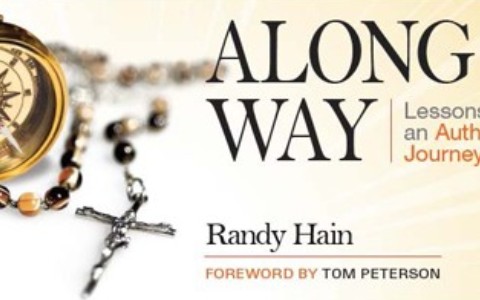 There’s nothing like the story of an underdog overcoming the odds to surprise everyone and come out on top. In the documentary Undefeated, the story of the Manassas Tigers, an inner city Memphis, Tennessee high school football team is a glimpse into a world of defeat.
There’s nothing like the story of an underdog overcoming the odds to surprise everyone and come out on top. In the documentary Undefeated, the story of the Manassas Tigers, an inner city Memphis, Tennessee high school football team is a glimpse into a world of defeat.
The boys have more family members who have gone to prison than to college. Manassas has the heritage of a 110-year losing streak; never having won a playoff since the school began in 1899. Scenes of poverty, garbage strewn on streets and slums reveal lives of the have-nots. This is the team that was often bussed into wealthy neighborhoods to pay-for-play homecoming games. The rich kids got their money’s worth—whipping an inner city team for a home victory. Without a booster club it seemed accepting humiliating defeats to fund football was the only way. But, getting beat up and starting the season as losers was a high price to pay.
Enter Bill Courtney, the father of four, a former high school coach and lumber salesman. When he volunteered to coach in 2004, no one expected him to do much with seventeen players, some shoddy equipment, and horrible practice facilities. But Bill reached in and pulled something out of these boys who had no reason to hope for better. He gave them something better–his heart. Again and again Bill told them that their character was not measured by their wins, but by what they did with their losses. He taught them that anyone could handle a win, but it takes a man to stand up to a defeat.
As Real As it Gets
This is not a Hollywood version of a movie “inspired” by a true story, this is the story. It is about a well-to-do man who remembered what it felt like to play football and not have a Dad come to his games. His own father had abandoned him when he was just four years old. Bill threw his love of the sport and the love of the boys into his coaching. He walked the halls of the school, checking on their grades and even taking one player into his home a few days a week so that he could be tutored; something not possible in the player’s own home. No tutor was willing to come into the inner city.
Since these were kids being themselves and not actors, the scenes were real but did not always play out as neatly as screenwriters would have arranged. An injury, a suspension, a couple of fights and poor test scores added disappointment and drama to a story that was about far more than just football.
By 2009, Manassas was beating the wealthy nearby football teams that had once bussed them in for their homecoming trouncings. During some games in which the team was visibility downtrodden with depressing halftime scores, the coach’s words pulled determination and faith out of his players to turn things around. We never forget where this team is from and at one game; they must keep their helmets on and make a beeline for the bus as police herd them quickly across the field. “The police don’t want any handshakes, just get on the bus!” the Coach commands; avoiding the prediction of the other team winning at postgame revenge.
About Beginnings, not Endings
What I love about documentaries is that it’s the real thing. What I didn’t like about this being a documentary was that there was no one controlling the story, no guarantee of a happy ending. It took a certain amount of faith to begin filming this story at all. After all, there was no controlling where it went and how it ended.
Some things turned out better than I expected and some not at all as I hoped—just the way life is. But in the end, the audience is treated to life as it is lived, where character is a choice regardless of the outcome.
My husband and I watched this film with our two grade school boys and their friends, and it kept everyone’s attention. There is some bad language used in the context of these people’s ordinary lives, but it is not extreme. At the end, the coach prays with his team and there is a scene with one of the players at church, being prayed for by his congregation. So, the movie has both a heart and a soul.
Undefeated has been nominated for a Critics Choice Award and an Academy Award for Best Documentary. It will be released in Los Angeles and NY Friday, February 17 and nationwide in select theaters on Friday, March 2.
Visit Patti’s website: http://www.PattiMaguireArmstrong.com
Follow Patti on Facebook: http://facebook.com/pattimaguirearmstrong
Please help us in our mission to assist readers to integrate their Catholic faith, family and work. Tell your family and friends about this article using both the Share and Recommend buttons below and via email. We value your comments and encourage you to leave your thoughts below. Thank you! – The Editors













